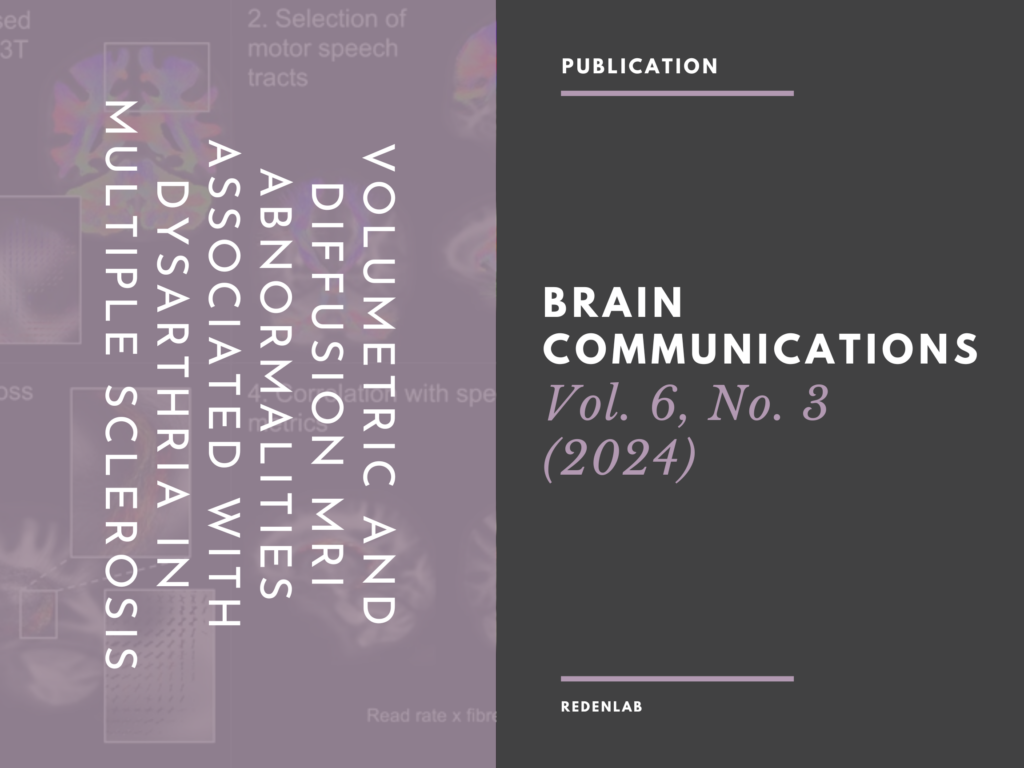Up to half of all people with multiple sclerosis experience communication difficulties due to dysarthria, a disorder that impacts the motor aspects of speech production. Dysarthria in multiple sclerosis is linked to cerebellar dysfunction, disease severity and lesion load, but the neuroanatomical substrates of these symptoms remain unclear.
Correlational analyses further indicated that higher speech naturalness—a perceptual measure of dysarthria—and lower reading rate were associated with axonal damage in the interhemispheric sensorimotor tract and left arcuate fasciculus in people with multiple sclerosis.
For this study, Redenlab has partnered with the Spinoza Centre for Neuroimaging, Netherlands Institute for Neuroscience, the Royal Academy for Arts and Sciences of KNAW, Melbourne Brain Centre Imaging Unit, Department of Radiology of the University of Melbourne, the Department of Neuroscience, School of Translational Medicine in Monash University, the Department of Neurology of the Royal Melbourne Hospital, and Murdoch Children’s Research Institute.
For more information, please click here.

